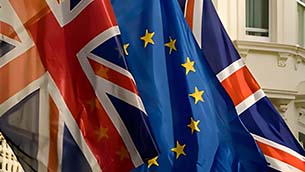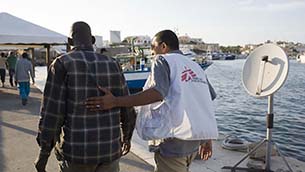So that its readers can understand how the European Union is run, what the economic crisis is about - the Robert Schuman Foundation publishes special supplements in which it deciphers and summarises the issues at stake. It offers unique analyses on various questions under debate in Europe at present.
Read our information sheets to understand the economic and financial crisis, the EU's budget, the budgetary pact and the Lisbon Treaty. In its chapter « Understanding Europe better », the Robert Schuman Foundation has put both informative (maps, comparative tables, statistics) and amusing (European anthem and quiz) documents on line so that the public understands Europe better.
The European Union, Russia, Ukraine and the eastern partnership

The geopolitical crisis that followed the refusal by former President of Ukraine,Viktor Yanukovych to sign the Association Agreement between Ukraine and the European Union at the end of 2013 caused turmoil in the east of Europe. The Eastern Partnership was the Union’s main instrument vis-à-vis its U... Read more
Understanding the EU Budget

On 2nd of May 2018, the European Commission put forward a proposal for the next Multi-annual Financial Framework 2014-2020. To understand the EU budgetary system better and what is at stake in the next one the Robert Schuman Foundation has created a special page on which it presents all of the artic... Read more
Understanding the Economic and Financial Crisis

To gain a better understanding of the issues at stake in the economic and financial crisis, the Robert Schuman Foundation has created a special page that brings together all the articles it has published on this subject. Read more
Understanding the budgetary Pact

The Treaty on Stability, Coordination and Governance (TSCG), better known as the European budgetary pact, signed on 2nd March 2012 in Brussels by the heads of State and government of 25 Member States of the European Union (all except for the UK and Czech Republic) entered into force on 1st January 2... Read more
Understanding the Lisbon Treaty

The European Council, which met in Lisbon on 18th and 19th October 2007 approved the new reform treaty so called "Lisbon Treaty", which replaces the draft Treaty establishing a Constitution for Europe. This new treaty introduces modifications both to the Treaty on European Union (Maastricht Treaty) ... Read more
Information File: Investment

The economic and financial crisis has affected investment severely since 2008: at the end of 2014 investment levels lay at 16.9% below that of 2007. However investment is an important lever for growth. In this context the European Commission chaired by Jean-Claude Juncker has made the recovery of i... Read more
European Union - United Kingdom relations

After a year and a half of negotiations between the United Kingdom and the European Union a compromise on the text of the Brexit agreement was reached on November 14, 2018. At an Extraordinary Council in Brussels on 25 November 2018, the European Heads of State and Government approved the Treaty on ... Read more
Facts and figures on Europe

To better understand Europe, the Robert Schuman Foundation provides concise fact sheets on the 27 Member States of the European Union and its neighbors. It also offers three tables on the representation of women in governments, national parliaments, and the European Parliament. Additionally, you can.../en/our-information-files/facts-and-figures-on-europe Read more
Information File: Immigration

The series of shipwrecks in the Mediterranean has led to an urgent situation regarding the European migratory policy. According to the International Organisation for Migration (IOM), more than 1,750 migrants perished in the Mediterranean between January and April 2015 – this is 30 times more than du... Read more
Information file: Completing European Economic and Monetary Union

After the 2008 economic crisis the States of the euro zone realised that the Economic and Monetary Union (EMU) was not complete and that consolidation was required. Initiatives have been taken to this effect with the introduction of the financial solidarity mechanisms, the European Stability Mechani... Read more
